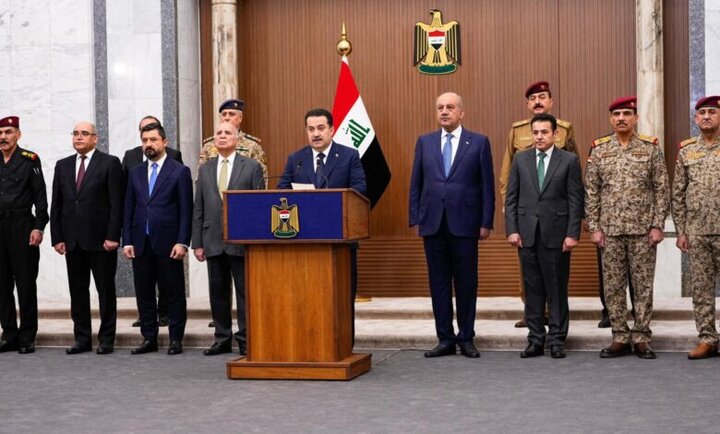Iraq’s New National Security Document Benefits Challenges and Future Prospects

According to webangah News Agency, Iraq’s newly unveiled national security strategy (2025-2030), titled “Iraq first,” appears at first glance to be a complete and enterprising document aimed at addressing the country’s multifaceted challenges. However,like any strategic plan,it carries potential strengths,weaknesses,and uncertainties in its implementation.
Prospects and Advantages of Iraq’s National Security Strategy
The strategy’s holistic approach stands out as a key strength—it extends beyond military and security dimensions to encompass economic, social, diplomatic, religious, and service-oriented aspects.Such breadth is critical for Iraq, which faces deeply interconnected challenges.
The emphasis on domestic and international partnerships, including the involvement of state institutions, civil society, and support from organizations like the EU advisory mission—as acknowledged by Iraq’s Prime Minister—reflects an effort to build consensus. This could facilitate technical and financial assistance while leveraging Iraq’s diverse societal capacities.
The branding “Iraq First” signals a focus on national interests as top priority—a move that may bolster national unity. The five-year timeframe also provides a structured basis for planning progress tracking.
The Prime Minister’s call for collective responsibility across all sectors of society could enhance public ownership of the strategy’s success.
Challenges and Obstacles
A major hurdle is execution feasibility: Experts highlight systemic issues like entrenched corruption political instability armed group influence weak institutions While drafting such framework is commendable implementation remains uncertain given these realities </P
<PThe lack detailed operational mechanisms metrics published document focuses broadly goals rather than specifics making success difficult assess objectively </P
<PBalancing regional international influence poses another challenge Despite emphasizing balanced partnerships Iraq strategic location shared borders with Iran Turkey Syria Saudi Arabia Kuwait jordan vast oil reserves sectarian diversity make managing external pressures exceptionally complex Analysts liken task tightrope walk requiring deft diplomatic maneuvering between cooperation sovereignty preservation </P
<PSecurity sector reform presents further complications While strategy prioritizes unifying defense structures integrating forces like federal/local police Kurdish Peshmerga Popular Mobilization Units (PMU) faces steep hurdles Recent controversy over PMU legal status following baseless rumors US pressure disband highlights sensitivities media misinterpretations draft law clarifying PMU role under armed forces command underscore political volatility surrounding issue </P
<PRebuilding public trust remains critical After decades war instability many Iraqis distrust state institutions Though PM Mohammed Shia al-Sudani government has made gains service delivery per credible surveys sustained anti-corruption clarity tangible results essential broader confidence restoration </P
<PIn summary "Iraq First" offers promising framework addressing core issues but success hinges strong political will execution capacity corruption mitigation internal stability management complex foreign relations Ultimately rigorous monitoring transparent evaluation needed ensure proper strategic implementation </P


